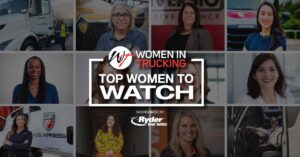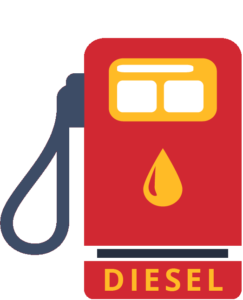Truck manufacturing rivals have come together to form Powering America’s Commercial Transportation (PACT), a coalition focused on accelerating the construction of nationwide infrastructure for medium- and heavy-duty (M/HD) zero-emission vehicles (ZEVs).
PACT is established by Daimler Truck North America (DTNA), Navistar, and Volvo Group North America (VGNA), who collectively represent approximately 70% of all new M/HD truck sales in the U.S. and are committed to electrification goals.
Each original equipment manufacturer (OEM) has battery-electric vehicles in the marketplace, but access to charging infrastructure is an increasingly significant bottleneck to the widespread adoption of these technologies, according to a news release.

Coalition membership is open to all stakeholders with an interest in accelerating the deployment of zero-emission commercial vehicles and the requisite infrastructure, including other OEMs, infrastructure developers, electric utilities and grid operators, and others. Other founding members include ABB E-mobility, Burns & McDonnell, B.C. Hydro, Greenlane, Prologis, and Voltera.
So far in the U.S., transportation electrification has largely focused on the needs of light-duty passenger vehicles, a far different market segment that does not require the same unique considerations as M/HDs. Quickly deploying reliable and accessible ZEV infrastructure to power the nation’s commercial transportation fleet necessitates distinct considerations for capital investment, electrical grid upgrades and dedicated charging equipment, PACT said.
700,000 chargers will be needed
According to the International Council on Clean Transportation, nearly 700,000 chargers will be needed nationwide to accommodate the one million Classes 4-8 M/HD ZEVs anticipated to be deployed by 2030, which will consume 140,000 megawatts of electricity every day, equivalent to the monthly energy needs of over 100 million American homes.
“Decarbonizing the commercial transportation sector – the fleets that keep America moving – is critical to meeting our nation’s climate goals. But the transition to zero-emission vehicles is stalling without the deployment of the needed charging infrastructure,” said John O’Leary, president and CEO of DTNA. “Through PACT, we aim to accelerate this infrastructure buildout so that fleets can adopt ZEVs at scale and we can all benefit from impactful emissions reductions as quickly as possible.”
“Commercial vehicle customers require fast, reliable, affordable, and convenient power to effectively deploy ZEV fleets at scale,” said Mathias Carlbaum, president and CEO of Navistar. “To enable their success, we must work collaboratively across sectors to deliver an infrastructure that provides access to seamless electricity and meets the commercial transportation industry’s unique needs. PACT provides a concerted forum dedicated to making this vision a reality; truly working to accelerate the impact of sustainable mobility.”
Stakeholder coordination
“The scale of infrastructure required for medium- and heavy-duty EV adoption is unprecedented. Understanding and coordination across the different stakeholders is imperative to deploy chargers quickly and cost-effectively,” said Stephen Roy, chairman of VGNA and president of Mack Trucks. “PACT will promote best practices to streamline this complex transition while minimizing impacts on fleets, utilities, and the economy.”
While supporting the deployment of commercial ZEV infrastructure, PACT will not advocate for specific vehicle, power generation, or utility distribution technologies. PACT exists to educate stakeholders about infrastructure challenges that hamper M/HD ZEV adoption in the marketplace and work with stakeholders to find solutions for the benefit of all interested parties. The coalition also champions practical and efficient infrastructure solutions capable of supporting increasing M/HD ZEV deployments.

